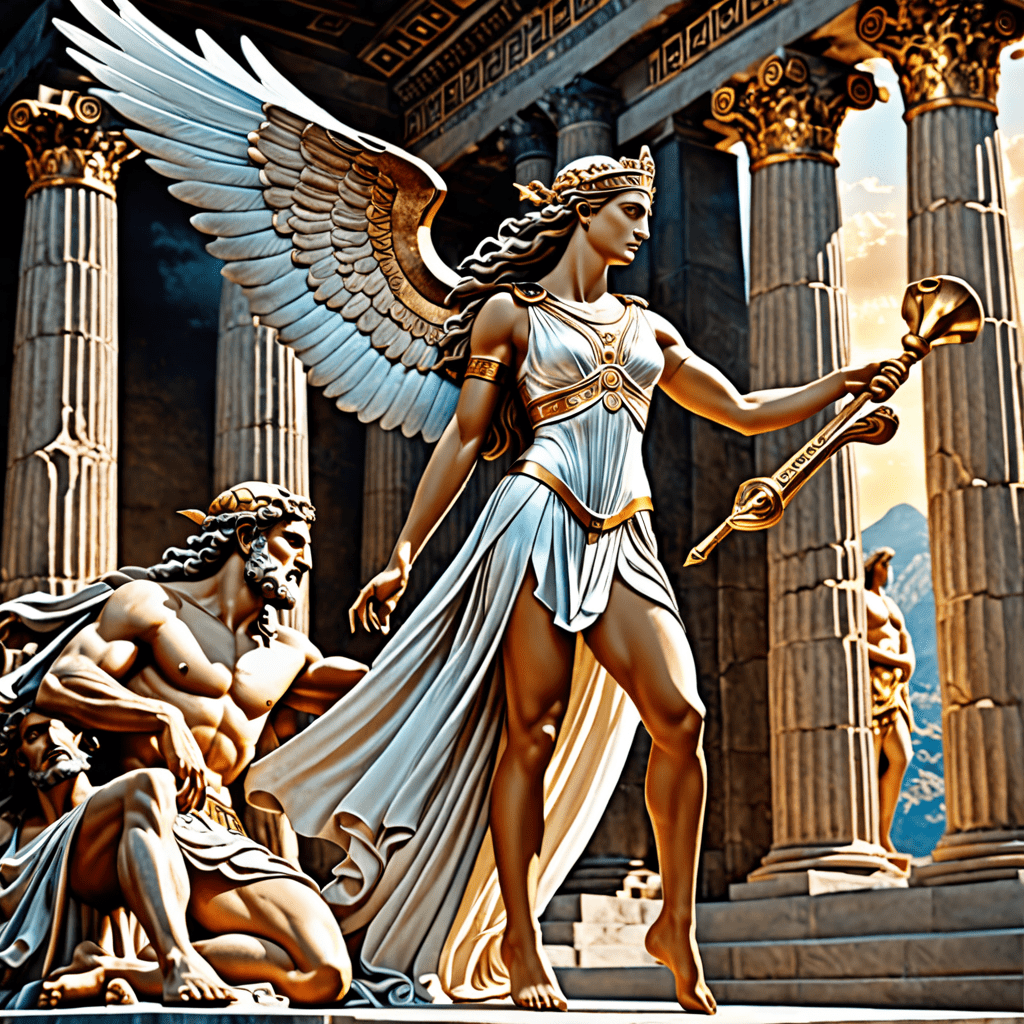The Representation of Beauty in Greek Mythology
Greek mythology, with its rich tapestry of gods, goddesses, heroes, and mythical creatures, often showcases the concept of beauty in various forms. From the captivating allure of Aphrodite to the chiseled perfection of Greek heroes, beauty plays a significant role in these ancient tales. Let’s delve deeper into how beauty is represented in Greek mythology.
Beauty as Divine Essence
In Greek mythology, beauty is often depicted as a divine quality. The goddess Aphrodite, known as the epitome of beauty and love, embodies grace, charm, and allure. Her radiance and enchanting presence mesmerize both gods and mortals alike. Stories of her beauty’s power and influence abound, emphasizing the divine nature of beauty in Greek tradition.
Physical Beauty and Heroic Ideals
Greek myths also idealize physical beauty, particularly in heroes such as Achilles and Helen of Troy. These figures possess not only extraordinary courage and strength but also exceptional aesthetics. The sculpted bodies of heroes like Achilles symbolize the ideal of physical perfection, intertwining beauty with valor and heroism in Greek lore.
The Dark Side of Beauty
However, Greek mythology also explores the darker aspects of beauty. The tale of Narcissus, who falls in love with his own reflection, serves as a cautionary reminder of vanity and its destructive consequences. These mythological accounts reveal the complex relationship between beauty, ego, and tragedy in the ancient Greek worldview.
Symbolism and Allegory
Beauty in Greek mythology often serves as a symbol or allegory for deeper truths and timeless themes. Whether representing desire, seduction, or harmony, beauty plays a multifaceted role in conveying moral, spiritual, and existential concepts to the audience. Understanding the symbolic nuances of beauty in these myths adds layers of meaning to these ancient narratives.
In conclusion, the representation of beauty in Greek mythology is a nuanced and multifaceted concept that extends beyond mere physical attractiveness. Through divine figures, heroic ideals, cautionary tales, and symbolic expressions, Greek myths showcase the enduring significance and complexity of beauty in the human experience.
FAQ about The Representation of Beauty in Greek Mythology
What is the significance of beauty in Greek mythology?
Beauty in Greek mythology often symbolizes divine qualities and perfection. Beautiful figures like Aphrodite, Helen of Troy, and Adonis represent ideals of physical and spiritual beauty.
How is beauty portrayed in Greek mythology?
Beauty in Greek mythology is often depicted as a powerful and captivating force that influences the gods and mortals. It is often tied to themes of love, desire, jealousy, and the consequences of pursuing physical beauty.
Which Greek myths highlight the importance of beauty?
Myths like the Judgment of Paris, the myth of Narcissus, and the story of Pygmalion and Galatea all emphasize the significance of beauty in Greek mythology. These tales explore the impact of beauty on individuals and society.
How does Greek mythology influence modern perceptions of beauty?
Greek mythology continues to influence modern perceptions of beauty through art, literature, and popular culture. The idealized beauty of Greek gods and goddesses still shapes our understanding of aesthetics and ideals of beauty today.



